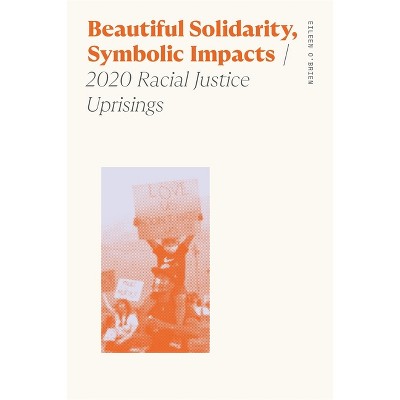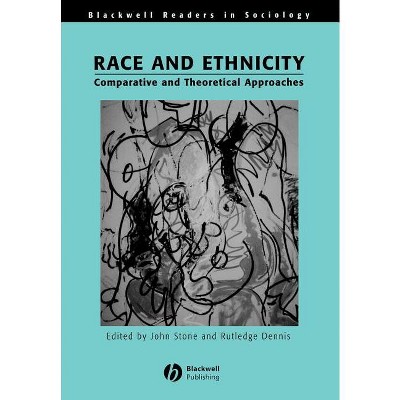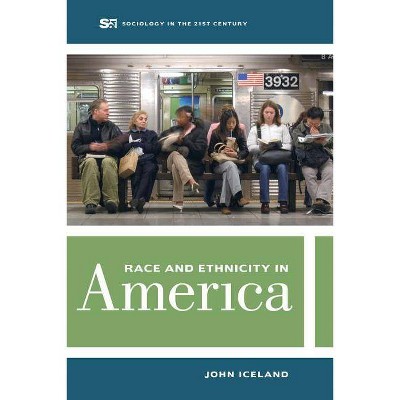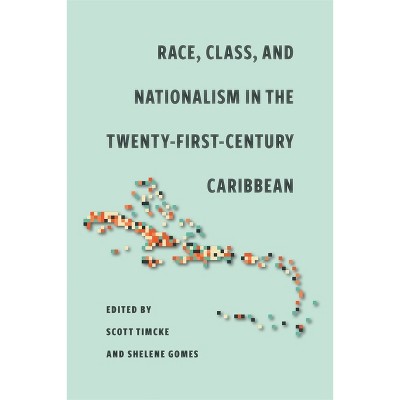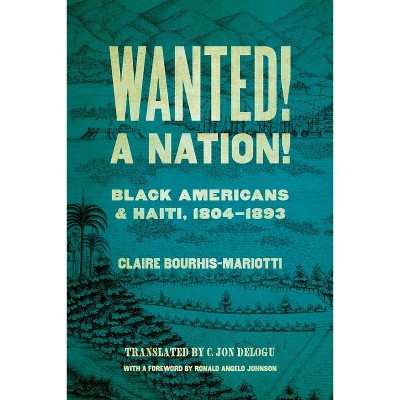Sponsored

The Bricks Before Brown - (Sociology of Race and Ethnicity) by Marisela Martinez-Cola (Paperback)
In Stock
Sponsored
About this item
Highlights
- In 1954 the U.S. Supreme Court ruled that state laws establishing racial segregation are unconstitutional, declaring "separate is inherently unequal.
- Author(s): Marisela Martinez-Cola
- 226 Pages
- Political Science, Civil Rights
- Series Name: Sociology of Race and Ethnicity
Description
About the Book
Based on author's thesis (doctoral - Emory University, 2018) issued under title: The bricks before Brown v. Board of Education: a comparative, historical study of race, class, and gender in Chinese American, Native American, and Mexican American school desegregation cases, 1885-1947.Book Synopsis
In 1954 the U.S. Supreme Court ruled that state laws establishing racial segregation are unconstitutional, declaring "separate is inherently unequal." Known as a seminal Supreme Court case and civil rights victory, Brown v. Board of Education resulted from many legal battles that predicated its existence. Marisela Martinez-Cola writes about the many important cases that led to the culmination of Brown. She reveals that the road to Brown is lined with "bricks" representing at least one hundred other families who legally challenged segregated schooling in state and federal courts across the country, eleven of which involved Chinese American, Native American, and Mexican American plaintiffs.
By revealing the significance of Chinese American, Native American, and Mexican American segregation cases, Martinez-Cola provides an opportunity for an increasingly diverse America to be fully invested in the complete grand narrative of the civil rights movement. To illustrate the evolution of these cases, she focuses on three court cases from California, including these stories as part of the "long civil rights movement," and thus expands our understanding of the scope of that movement along racial, gender, and class lines. Comparing and discussing the meaning of the other court cases that led to the Brown decision strengthens the standing of Brown while revealing all the twists and turns inherent in the struggle for equality.Review Quotes
Research on racial segregation often occurs in siloed fields, such as in education, political science, or sociology of race and ethnicity. Bricks merges these fields to establish how intersecting identities impact struggles for educational rights. Bricks gives voice to Latine, Chinese, and Native American families left out of the Black/White racial binary and resistance movements countering U.S. racial inequality.--Trisha Douin, Melanie Jones Gast, and John Broadus "Sage Journals: Sociology of Race and Ethnicity"
The Bricks before Brown is written in an engaging style and puts forth a compelling narrative of the court cases that laid the foundation for school desegregation. This book will change the way we think about the long road to school desegregation . . . . This is a story that needs to be told, and Marisela Martinez-Cola tells it very well.--Tanya Maria Golash-Boza "author of Race and Racisms: A Critical Approach"
The Bricks before Brown offers an intriguing, almost bird's-eye view of the web of litigation that predated the iconic U.S. Supreme Court decision in Brown v. Board of Education. The author digs deep into the historical record to provide a fulsome account of a handful of California cases that represent a broad spectrum of resistance to school segregation by race and national origin.--Doris Marie Provine "author of Unequal under Law: Race in the War on Drugs"
Shipping details
Return details
Trending Non-Fiction






